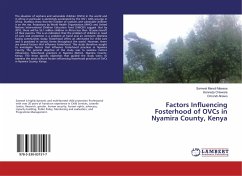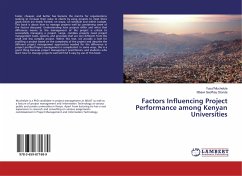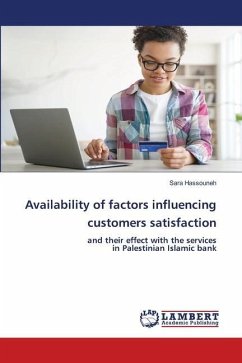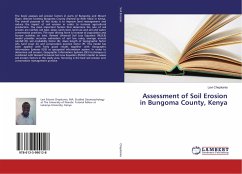
Factors Influencing Fosterhood of OVCs in Nyamira County, Kenya
Versandkostenfrei!
Versandfertig in 6-10 Tagen
33,99 €
inkl. MwSt.

PAYBACK Punkte
17 °P sammeln!
The situation of orphans and vulnerable children (OVCs) in the world and in Africa in particular is alarmingly accelerated by the HIV / AIDs scourge in Africa. Statistics show that the number of orphans and vulnerable children is on the rise. Projections by World Health Organisation (WHO) and United Nations International Children Education fund (UNICEF) suggest that by 2010, there will be 53.1 million children in Africa less than 18 years bereft of their parents. This is an indication that the problem of children in need of care and protection is a problem at hand and an imminent dilemma facin...
The situation of orphans and vulnerable children (OVCs) in the world and in Africa in particular is alarmingly accelerated by the HIV / AIDs scourge in Africa. Statistics show that the number of orphans and vulnerable children is on the rise. Projections by World Health Organisation (WHO) and United Nations International Children Education fund (UNICEF) suggest that by 2010, there will be 53.1 million children in Africa less than 18 years bereft of their parents. This is an indication that the problem of children in need of care and protection is a problem at hand and an imminent dilemma facing communities today. Fosterhood offers an alternative for child care and is practised in various forms throughout the world. However, there are several factors that influence fosterhood. This study therefore sought to investigate factors that influence fosterhood practices in Nyamira County. The general objective of the study was to examine factors influencing fosterhood practices in NyamiraDistrict, Nyamira County, Kenya. The three specific objectives that guided the study were; to examine the social cultural factors influencing fosterhood practices of OVCs in Nyamira County, Kenya.












